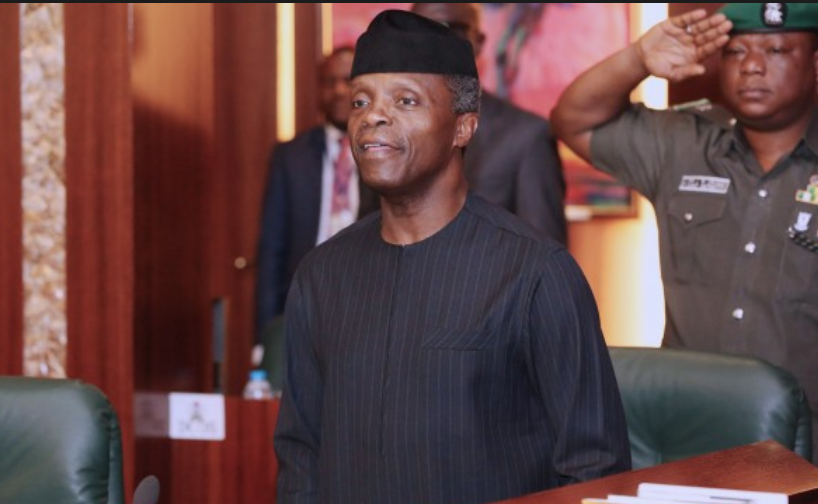Vice President Yemi Osinbajo on Monday said the Federal Government is working with African Development Bank (AfDB) to establish a 500-million-dollar innovation fund for technological growth.
Osinbajo stated this at the opening ceremony of the 22nd African Securities Exchanges Association (ASEA) Annual General Meeting and Conference organized by the Nigerian Stock Exchange (NSE) in Lagos.
The Vice President said that the fund was aimed at increasing the competitiveness of Nigeria’s Information and Communications Technology (ICT) industry.
“We are accordingly working with the AfDB to establish a 500-million-dollar innovation fund; this will support activities in the sector.
“Given the size of our economy and the potential of technology and creative segment, I am hopeful that capital market operators will work toward innovative financing solutions to lend further support to these two sectors,” Osinbajo said.
He further stated that the Central Bank of Nigeria (CBN) would soon issue licence for payment service banks, which would increase access to financial services, low income earners and the unbanked.
The Vice President noted that the partnership was also essentially to ensure that African champions continued to rise in a sustainable manner.
According to him, such partnership must be between government and private firms, as well as between businesses associations “and this is something we must pay a great deal of attention to”.
He explained that government was committed to ensuring macroeconomic stability in an inclusive economy with a diversified production base.
“We also realized that a conducive and supportive environment is essential for business to thrive and we have accordingly invested heavily in infrastructure while working strenuously to make it easier to do business in Nigeria.
“We also realised the importance of sustainable future and we become the first African country to float the green bond to promote the environmental objective of our Economic Recovery and Growth Plan (ERGP),” he said.
Osinbajo said that government would ensure that its rising population was protected, housed without further depleting or damaging resources.
He emphasised that African companies, essentially those listed on the exchanges and those that made up the association, must also be champions on the rise.
He said that companies must innovate and take advantage of the unique features of the African economy.
“It is evident that ASEA has a key role in our quest for economic growth and development.
“This is not only because of the vital role that capital markets plays in our domestic economy, but because the association reflects the right place of collaboration and partnership required of African countries and economic institutions to bring about a more vibrant and dynamic continental economy,” Osinbajo said.
The Minister of Finance, Mrs Zainab Ahmed, urged ASEA to develop a strong and vibrant domestic investors’ base.
Ahmed, who was represented by Ms Mary Uduk, acting Director-General of Securities and Exchange Commission (SEC) said that low domestic investors’ base was limiting African capital markets.
She said that the capital market size of Africa was very low, thereby limiting market potential, noting that ASEA must promote world-class capital market, characterised by high level of liquidity.
The conference has “Champions On The Rise: Africa’s Ascension To More Sustainable Future” as its theme.

